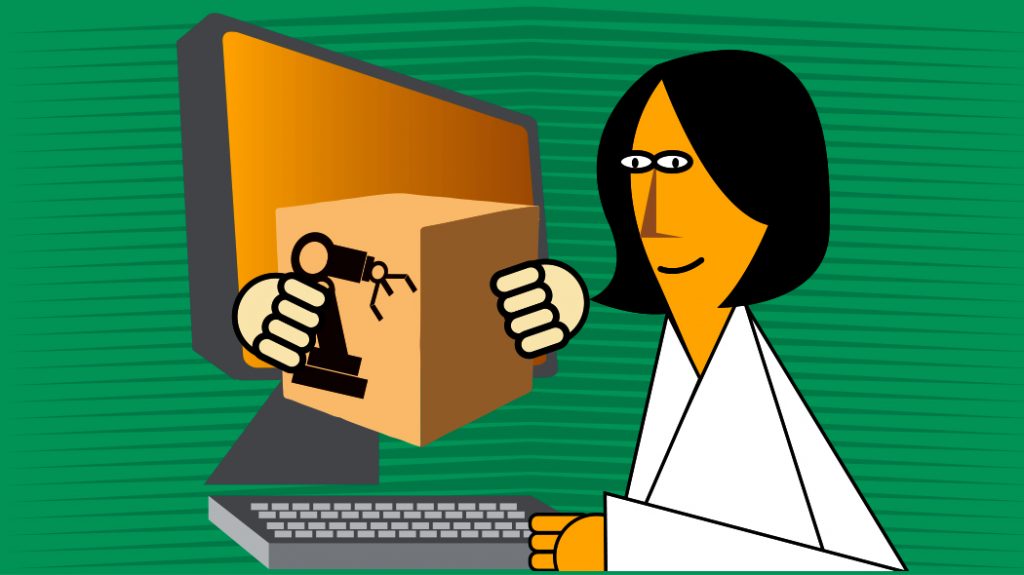Penny-Pinching PIs
Life is expensive and all of us try to save money when we can. On a good day, we’re able to save a lot of money on the things we need by using online platforms such as Amazon or eBay.
Saving a dollar or two on milk or Kleenex is like hitting a home run for many people. Can you imagine how a PI feels when they save hundreds or thousands of dollars on lab equipment? PIs are just like us non-science folk. They want to save money too, which makes them no strangers to
eBay, Amazon or some obscure website from New Zealand.
It’s not rare for a PI to land a bargain on lasers or chemicals, but this behavior may present serious safety hazards. On this edition of the Big Bang, I decided to explore how to be safe when bargain shopping for lab equipment. I reached out to Cris Milligan, assistant vice president for UH’s Division of Research, on this issue because she oversees the UH Office of Research Core Facilities and she’s super smart.
“I support PIs and their desire to save money, especially when grant money is tight,” said Milligan. “Researchers want to spend their money hiring staff on something else directly related to the project, but there’s a proper way to purchase refurbished equipment.”
The Safety Hazards of Frugality
Not only is there a potential safety hazard when an item is purchased from “company mystery land,” but the item’s physical specifications aren’t verified, which causes problems, too. “There was a faculty member who purchased a very large piece of equipment at an auction. The equipment came and nobody knew it was coming,” said Milligan. “We found out the equipment required a substantial heat load and in order for the equipment to work, buildings needed modifications. Turns out, the university was not able to accommodate the equipment and now it sits in a warehouse … state owned junk pretty much.”
When it comes to safety, purchasing chemicals or powerful lasers from an unauthorized vendor is very dangerous and the money “saved” is definitely not worth the risk. “Lasers, for example, can be modified. PIs modify lasers all the time,” said Milligan. “If a researcher purchased a laser from a random source, they don’t exactly know what they’re getting, which is dangerous because you could potentially expose someone to high levels of radiation.”
Savings Over Science? Never!
Another unfortunate side effect of being too frugal is the risk of compromising the integrity of a research project. “I’ve seen a PI scrimp and buy a used refrigerator,” said Milligan. “Because the PI wanted to save a few dollars, they ended up purchasing a faulty refrigerator that ruined their research samples.”
It’s terrifying to imagine a PI’s life work destroyed because they purchased a $400 used refrigerator instead of a $900 new one.
Tips For Tight Budgets
So what is a researcher to do when funds are tight and equipment needs are substantial? Cris offered a few tips for frugal PIs:
1. Look for equipment with a warranty or from a certified vendor
Never purchase equipment or materials from an unknown, uncertified vendor. You don’t know where it came from or whether it’s safe to use. As a result, you could avoid major setbacks in your lab.
2. Procurement is your friend
The Office of Procurement is here to help. They will help guide you through the process of purchasing refurbished equipment. More importantly, the Office of Procurement can provide a list of authorized vendors to use.
3. Property Management and Facilities are your friend too
Once you select a refurbished item, it’s wise to work with Property Management and Facilities to ensure the infrastructure of the lab is suitable for the equipment. If everyone works as a team and there is a plan in place early, labs can be modified or updated to welcome your new item.
4. Determine the overall benefit
Analyze the benefit of purchasing a particular piece of used equipment. Will you truly save money if you constantly repair the item? Is your research project at risk?
Overall, safety is number one and no amount of money saved is worth the health and safety of a PI and their students. There is nothing wrong with purchasing used/refurbished equipment; however, it’s best to work with your organization to ensure the equipment meets certain standards. As a result, everyone will be safer in your lab, your equipment will function properly and research projects can move forward.
Well, that’s it for this edition of the Big Bang. Until next time…Be well and stay safe!



